Nepal is a beautiful country known for its striking sceneries, rich culture, and warm hospitality. Whether you're scheduling a trekking adventure in the Himalayas or exploring the cultural heritage of Kathmandu Valley, understanding Nepal's visa requirements is vital for a smooth journey.
Types of Visas for Nepal
Tourist Visa
A Tourist Visa for Nepal is considered for individuals who plan to visit the country for leisure, tourism, and leisure purposes. This type of visa allows you to explore Nepal's natural beauty, cultural heritage, and various tourist attractions. Here is some full information about the Tourist Visa for Nepal.
1. Eligibility
Tourist visas are available for citizens of most countries around the world. However, some countries may have specific visa necessities, so it's essential to check with the Nepali embassy or delegation in your home country or the official Department of Immigration website for your eligibility.
2. Visa Duration
Tourist visas for Nepal can be allotted for different durations, including 15 days, 30 days, or 90 days. The period you receive may depend on your choice and the fees you pay.
3. On-Arrival Visa
Tourist visas can be gained on arrival at Tribhuvan International Airport in Kathmandu or at various land border crossings with India and China. You'll need to fill out a visa application form and provide the necessary papers upon arrival.
4. Visa Fees:
The visa fees for tourists differ based on the duration of your stay
5. Visa Extension
If you wish to extend your stay in Nepal beyond the early duration granted by your tourist visa, you can apply for an extension. Extensions are generally available in 15, 30, or 90-day increments at the Department of Immigration in Kathmandu or certain immigration offices in other cities.
6. Visa Requirements
To obtain a tourist visa for Nepal, you exact need the following:
A valid passport with at least six months of rationality from your date of entry.
A current passport-sized photograph.
The complete visa application form, which can be found at the immigration counter upon arrival.
7. Overstay Penalties
It's essential to stick to the terms and duration of your tourist visa. Overstaying your visa in Nepal can result in penalties, deportation, or other permitted consequences, so make sure to renew or extend your visa if necessary.
8. Visa-Free Transit
Nepal also offers visa-free transportation for travellers who are passing through Tribhuvan International Airport for up to 48 hours. This option is suitable for stops and does not require a visa fee.
9. Visa for Minors
Travellers under the age of 10 and attended by their parents or guardians can obtain a tourist visa for free.
10. Online Visa Application
Nepal had introduced an online visa application system that permitted travellers to apply for a tourist visa in advance. This system was planned to streamline the visa process and lessen waiting times at the airport.
Please note that visa guidelines and fees may change over time, so it's vital to verify the most up-to-date information with the Nepali embassy or embassy in your home country or the official Department of Immigration website before planning your trip to Nepal.
Trekking Permit
A Trekking Permit in Nepal is required for individuals who plan to be involved in trekking events in the country. Trekking is a popular outdoor venture in Nepal, known for its breathtaking Himalayan scenery and diverse trekking routes. To guarantee responsible trekking and environmental conservation, different permits may be necessary depending on the region you propose to trek in. Here is detailed information about Trekking Permits in Nepal:
1. Trekking Regions and Permits
Nepal is divided into various trekking regions, each with its exclusive requirements and permits. Some of the famous trekking areas include the Annapurna region, Everest region, Langtang region, and constrained areas like Upper Mustang and Upper Dolpo.
2. TIMS (Trekkers' Information Management System) Card
The TIMS card is a vital permit for most trekking regions in Nepal. It is planned to keep track of trekkers and safeguard their safety. There are two types of TIMS cards:
Blue TIMS card: Issued for trekkers roaming in the Annapurna, Langtang, Gosaikunda, and Helambu regions.
Green TIMS card: Issued for trekkers roaming in the Everest region and other areas not covered by the blue card.
3. Annapurna and Langtang Permits
In addition to the TIMS card, trekkers visiting the Annapurna and Langtang regions may need to get a local area permit, which is precise to those regions. The fees for these permits differ depending on the trekking area.

4. Everest Region Permits
Trekkers heading to the Everest region, including routes like the Everest Base Camp trek, need a Sagarmatha National Park Entry Permit. This permit can be attained in Kathmandu or directly at the park entrance in Monjo.
5. Restricted Area Permits
Some trekking areas in Nepal, such as Upper Mustang, Upper Dolpo, and parts of Manaslu, are restricted areas. To trek in these regions, you must obtain a special limited area permit. These permits have higher fees and may require you to be part of an planned trekking group.
6. Permit Application Process
To obtain trekking permits in Nepal, you generally need to provide the following:
A legal passport with at least six months of validity.
A current passport-sized photograph.
A complete permit application form.
The required permit fees.
7. Trekking Agencies
While it's possible to obtain permits self-sufficiently, many trekkers choose to go through a listed trekking agency. These agencies can assist with permit applications, provide guides and porters, and arrange other logistics for a smoother trekking understanding.
8. Responsible Trekking
Nepal inspires responsible trekking practices, including proper waste disposal, with respect to local customs and culture, and following trekking regulations. Trekkers are expected to leave no trace and contribute to the protection of Nepal's natural beauty.
9. Check Local Regulations
Trekking regulations and permit requirements may change over time. Therefore, it's vital to check the latest information from the Nepal Tourism Board, the Department of Immigration, or local powers that are in the region you plan to trek.
10. Conservation and National Park Fees
In addition to the permits stated above, some trekking routes may also require you to pay conservation and national park fees. These fees pay to the conservation and maintenance of the trekking areas.
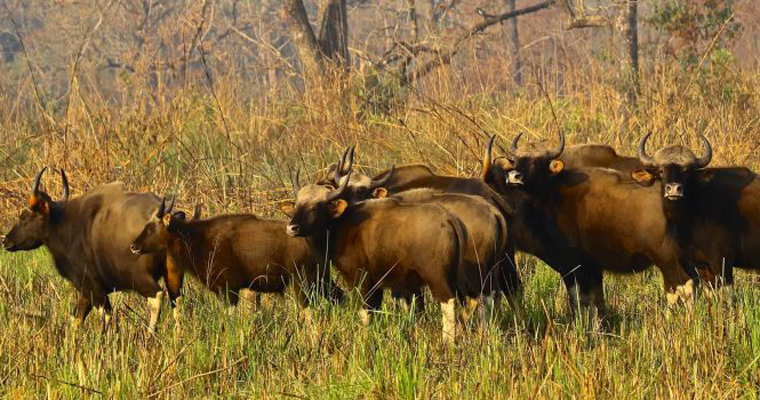
It's important to plan your trekking adventure in Nepal carefully, considering the specific permits required for your chosen route. Trekking permits help support local communities, safeguard safety, and protect Nepal's fabulous natural environment, making it an unforgettable experience for all trekkers.
Business Visa
A Business Visa for Nepal is intended for foreign nationals who intend to engage in business-related activities within the country. This type of visa allows persons to explore business opportunities, attend meetings, conferences, and join in commercial activities in Nepal. Here is detailed information about the Business Visa for Nepal:
1. Eligibility
Business visas in Nepal are naturally issued to foreign nationals who plan to conduct business activities such as venture, trade, or partnerships in Nepal.
To apply for a business visa, you may need to have a supporting company or organisation registered in Nepal.
2. Visa Duration
Business visas for Nepal can be issued for unlike durations, including 15 days, 30 days, 90 days, and one year.
3. Visa Application
To obtain a business visa for Nepal, you generally need to follow these steps:
Fill out the visa application form, which can be found from the Nepali embassy or embassy in your home country or upon arrival in Nepal.
Provide a valid passport with at least six months of rationality from your planned date of entry.
Submit a current passport-sized photograph.
Provide a letter of invite from a registered company or organisation in Nepal, requiring the purpose and duration of your visit.
4. Visa Fees
The visa fees for business visas differ depending on the duration of your stay and the country of your citizenship. Fees may be subject to change, so it's vital to check with the Nepali embassy or consulate for the most up-to-date fee schedule.
5. Visa Extension
If you need to extend your business visa while in Nepal, you can apply for an extension at the Department of Immigration in Kathmandu or selected immigration offices in other cities. Extensions are classically available in 15, 30, or 90-day increments.
6. Work Permit
It's important to note that a business visa alone does not grant you permission to work in Nepal. If you intend to work in Nepal, you will need to obtain a work permit, which requires a job offer from a registered company in Nepal and agreement with Nepali labour laws.
7. Business Activities
While on a business visa, you can be involved in various business-related activities, such as attending meetings, conferences, and trade exhibitions, as well as discovering investment opportunities.
8. Overstay Penalties
It is vital to follow the terms and duration of your business visa. Overstaying your visa in Nepal can result in fines, deportation, or other legal penalties, so make sure to renew or extend your visa if necessary.
9. Multiple Entry Option:
Business visas for Nepal often offer multiple entry options, allowing you to leave and re-enter the country within the visa's legitimacy period. This is especially suitable for business travellers who need to visit neighbouring countries for business purposes.
10. Business Registration: - If you plan to establish a business or invest in Nepal, it's important to understand the country's business registering and investment procedures. Nepal has its own regulations leading foreign investment, and it's sensible to seek legal counsel and guidance from relevant government agencies.
Please note that visa regulations and necessities may change over time, so it's essential to confirm the most up-to-date information with the Nepali embassy or legation in your home country or the official Department of Immigration website before planning your business-related travel to Nepal.
Student Visa
A Student Visa for Nepal is planned for international students who plan to pursue education or training in Nepal. This type of visa permits foreign nationals to study at recognized educational institutions in Nepal, such as universities, colleges, or language schools. Here is detailed information about the Student Visa for Nepal:
1. Eligibility
Student visas in Nepal are normally issued to foreign nationals who have been acknowledged by a recognized educational institution in Nepal.
To apply for a student visa, you will need to provide an acceptance letter or admission offer from the institution where you aim to study.
2. Visa Duration
Student visas for Nepal are naturally issued for the duration of the academic program. The visa duration may differ depending on the length of your course of study.
3. Visa Application
To obtain a student visa for Nepal, you characteristically need to follow these steps:
Fill out the visa application form, which can be obtained from the Nepali embassy or consulate in your home country or upon entrance in Nepal.
Provide a valid passport with at least six months of validity from your planned date of entry.
Submit a current passport-sized photograph.
Present the acceptance letter or admission offer from the educational institute in Nepal.
4. Visa Fees
The visa fees for student visas in Nepal contrast based on the duration of your stay and the country of your citizenship. Fees may be subject to change, so it's vital to check with the Nepali embassy or legation for the most up-to-date fee schedule.
5. Visa Extension
If your academic program in Nepal extends outside the original visa duration, you can apply for a visa extension at the Department of Immigration in Kathmandu or selected immigration offices in other cities.
6. Enrollment Verification
To preserve your student visa status, you will need to provide proof of registration in your educational institution. This may involve presenting records, enrollment certificates, or other documents demanded by immigration authorities.
7. Part-Time Work
Student visa holders in Nepal may be allowed to engage in part-time work while following their studies. The specific rules regarding part-time work for international students can vary, so it's advisable to check with your institution and migration authorities for the latest rules.
8. Overstay Penalties
It is central to follow the terms and duration of your student visa. Overstaying your visa in Nepal can result in fines, deportation, or other legal costs, so make sure to renew or extend your visa if necessary.
9. Study Programs in Nepal
Nepal offers a range of study programs, including undergraduate, postgraduate, language courses, and cultural studies. Organisations like Tribhuvan University, Kathmandu University, and other colleges and language schools provide chances for international students.
10. Accommodation and Living Arrangements
Before travelling to Nepal as a student, it's important to arrange for space and guarantee you have the necessary financial resources to cover your living expenses during your stay.
Please note that visa regulations and requirements may change over time, so it's essential to confirm the most up-to-date information with the Nepali embassy or delegation in your home country or the official Department of Immigration website before planning your educational journey to Nepal.
Moreover, it's sensible to communicate with your chosen educational institution in Nepal for supervision on the visa application process and any precise requirements they may have for international students.
Work Visa
A Work Visa for Nepal is proposed for external nationals who plan to be involved in employment or work-related activities in Nepal. This type of visa allows individuals to officially work for a listed company or organisation in Nepal. Here is detailed information about the Work Visa for Nepal:
1. Eligibility
Work visas in Nepal are characteristically issued to foreign nationals who have received a job offer or employment contract from a recorded company or organisation in Nepal.
2. Visa Duration
The duration of a work visa in Nepal differs and is typically linked to the length of the employment bond or the specific terms set by the Department of Immigration.
3. Visa Application
To obtain a work visa for Nepal, you normally need to follow these steps:
Fill out the visa application form, which can be obtained from the Nepali embassy or legation in your home country or upon arrival in Nepal.
Provide a valid passport with at least six months of validity from your planned date of entry.
Submit a current passport-sized photograph.
Present the employment contract or job offer from the Nepali company or organisation that is supporting your work visa.
4. Visa Fees
The visa fees for work visas in Nepal can differ based on the duration of your stay and your country of citizenship. Fees may be subject to change, so it's important to check with the Nepali embassy or embassy for the most up-to-date fee schedule.
5. Work Permit
In addition to the work visa, you will need to obtain a work permit to officially work in Nepal. The work permit application is characteristically submitted by your manager to the Department of Labor and Employment Promotion.
6. Visa Extension
If your employment in Nepal continues beyond the initial visa duration, you can apply for a visa postponement at the Department of Immigration in Kathmandu or chosen immigration offices in other cities.
7. Change of Employer
If you change employers while in Nepal, it's vital to update your work visa and work permit accordingly. The new employer must initiate the process of moving your work permit to their name.
8. Part-Time Work
Depending on the specific terms of your work visa and work permit, you may or may not be allowed to involve in part-time work outside of your main employment. It's important to understand the conditions of your visa and work licence regarding part-time work.
9. Overstay Penalties
It is vital to follow the terms and duration of your work visa. Overstaying your visa in Nepal can result in fines, deportation, or other legal values, so make sure to renew or extend your visa if necessary.
10. Work Opportunities in Nepal
Nepal offers work opportunities in various sectors, including education, tourism, development organisations, and businesses. Some popular job roles for emigrants include teaching English, working in the tourism business, and causal to development projects.
Please note that visa regulations and necessities may change over time, so it's important to confirm the most up-to-date information with the Nepali embassy or consulate in your home country or the official Department of Immigration website before preparing your employment in Nepal. Additionally, working in Nepal may include compliance with labour laws and tax regulations, so it's advisable to seek legal advice and guidance from applicable government agencies and your employer.
Residential Visa
A Residential Visa in Nepal is a long-term visa that allows overseas nationals to live, retire, or invest in Nepal for an extended period. This type of visa is suitable for individuals who plan to make Nepal their main residence. Here is detailed information about the Residential Visa for Nepal:
1. Eligibility
Residential visas in Nepal are typically issued to foreign nationals who meet specific standards set by the government. These norms may include retirees, investors, or individuals who wish to live in Nepal for an extended period.
2. Visa Duration
The duration of a inhabited visa in Nepal can vary based on the specific category for which you are entitled. Common categories include retirement visas and investment visas, each with its own period and requirements.
3. Visa Application
To obtain a residential visa for Nepal, you generally need to follow these steps:
Fill out the visa application form, which can be obtained from the Nepali embassy or legation in your home country or upon arrival in Nepal.
Provide a valid passport with at least six months of validity from your planned date of entry.
Submit a current passport-sized photograph.
Provide all essential documents and evidence to support your entitlement for the specific residential visa category you are applying for (e.g., proof of retirement, proof of investment, etc.).
4. Visa Fees
The visa fees for residential visas in Nepal can differ based on the category and duration of your visa. Fees may be subject to change, so it's vital to check with the Nepali embassy or delegation for the most up-to-date fee schedule.
5. Categories of Residential Visas
There are several categories of residential visas in Nepal, including:
Retirement Visa: For individuals who have given up work and wish to spend their retirement years in Nepal.
Investment Visa: For individuals who plan to make important investments in Nepal, such as in businesses or real estate.
Other Categories: Nepal may introduce new residential visa categories or alter existing ones over time. It's vital to check the latest information with the Nepali embassy or consulate.
6. Visa Extension
Residential visas can naturally be lengthy in Nepal. The extension process may require you to continue meeting the suitability criteria for your specific visa category.
7. Proof of Income or Investment
Depending on the type of residential visa you are applying for, you may need to prove a stable income or a significant investment in Nepal. Requirements can vary, so it's important to consult the applicable authorities for specific criteria.
8. Overstay Penalties
It is vital to follow the terms and duration of your residential visa. Overstaying your visa in Nepal can result in fines, deportation, or other legal consequences, so make sure to renew or extend your visa if necessary.
9. Residence in Nepal: - Once you obtain a residential visa, you can lawfully reside in Nepal and enjoy the benefits of living in the country. This includes admission to healthcare, education, and other services.
10. Legal and Tax Considerations: -
Residing in Nepal as a resident may involve submission with tax regulations and other legal requirements. It's sensible to seek legal advice and guidance from related government agencies to guarantee you meet all legal responsibilities.
Please note that residential visa regulations and necessities may change over time, and new visa classes may be introduced. Therefore, it's essential to confirm the most up-to-date information with the Nepali embassy or consulate in your home country or the official Department of Immigration website before scheduling your long-term residence in Nepal.
Conclusion
Nepal offers various types of visas to house different travel purposes, whether you're a tourist, trekker, business traveller, student, or long-term resident. It's vital to understand the specific necessities for your intended stay and follow the visa application and allowance procedures to ensure a hassle-free experience in this spectacular Himalayan nation. Always confirm the latest visa guidelines before planning your trip.

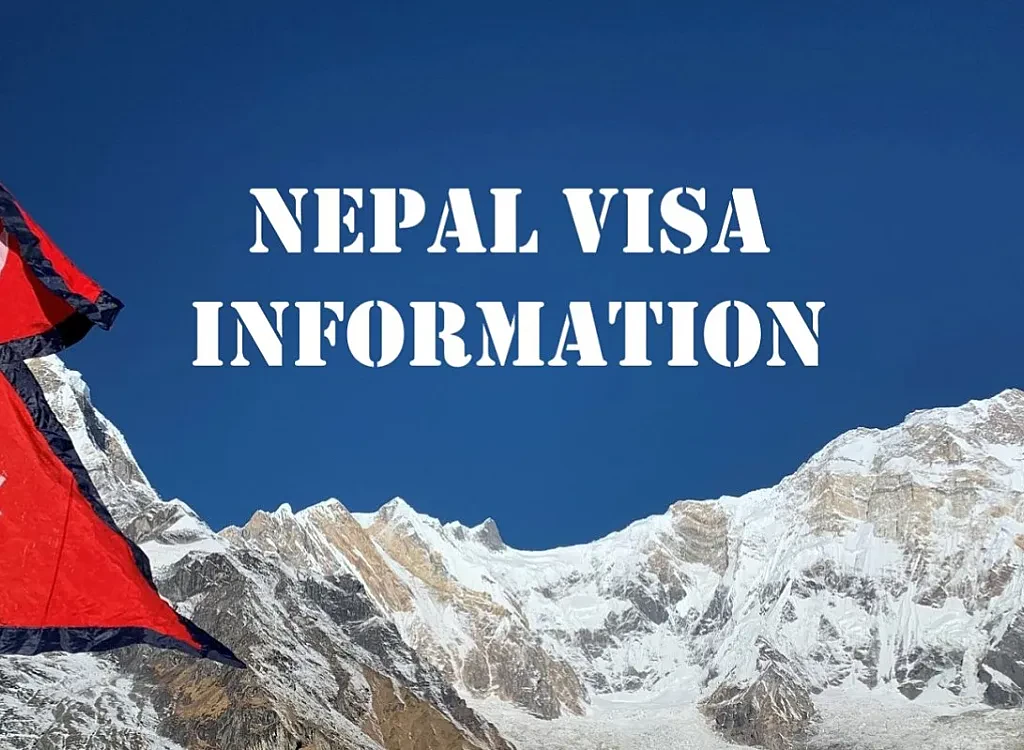
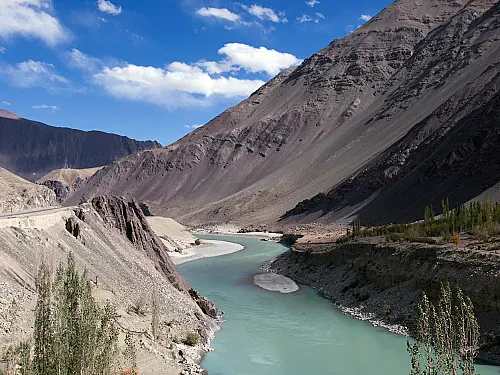
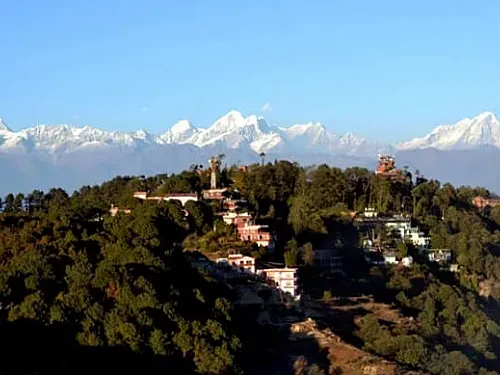
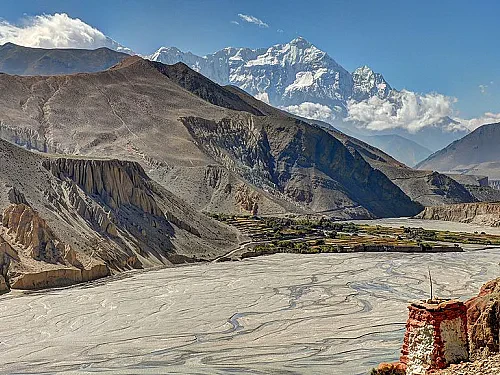
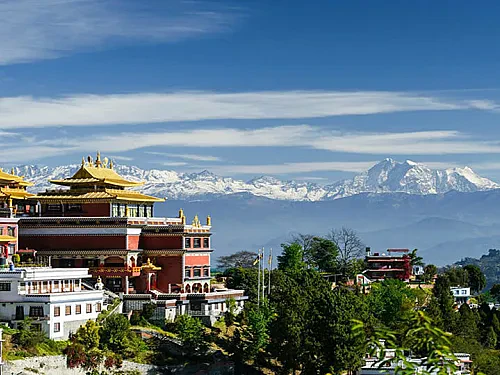
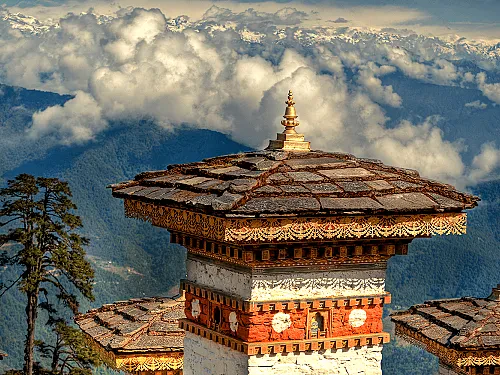
Comments